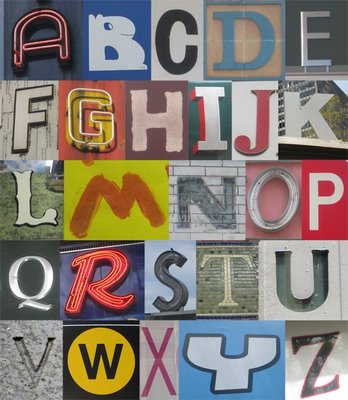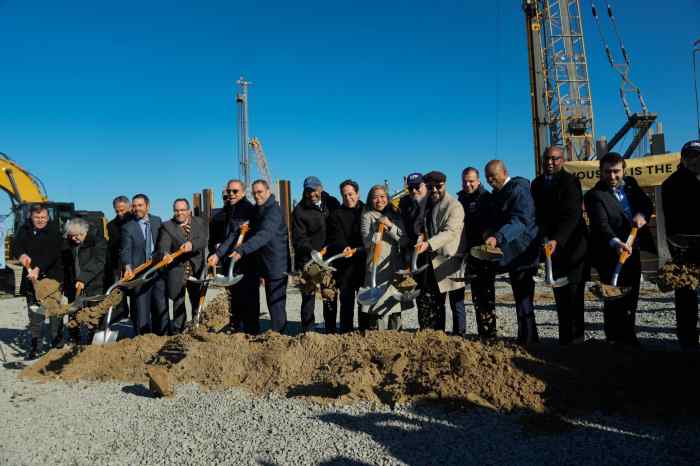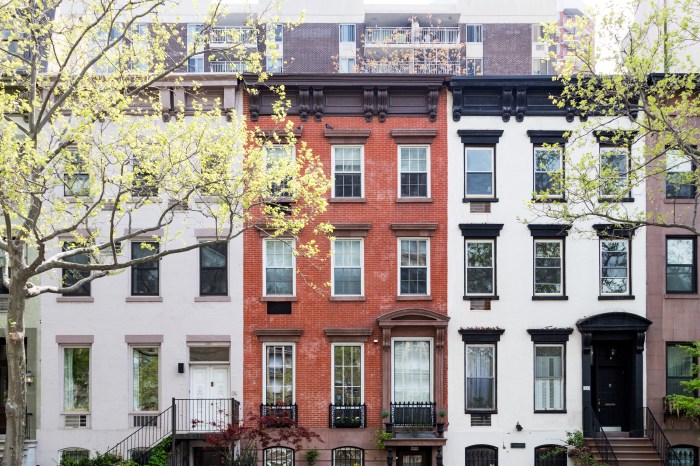Case is clear: No housing on pier
To The Editor:
As one of the attorneys who brought the case establishing the Pier 40 ball fields (along with Arthur Z. Schwartz), I have been following the debate about whether housing should be permitted on Pier 40.
I have lived and worked in Tribeca for about 30-plus years. My kids played ball in the Greenwich Village and Downtown Little Leagues and used the batting cages and the fields at Pier 40. It is no secret that Downtown Manhattan is one of the most park-deprived places in the city, but I don’t think housing is a viable long-term solution.
I strongly support the plan advocated by Deborah Glick, Brad Holyman and Douglas Durst, among others.
While I hope that the Hudson Rive Park will be self-supporting and finished soon, I don’t believe housing on Pier 40 is the answer in either the short- or long-term.
Please put my name on the list of people saying “No” to housing in the Hudson River Park, and let a permanent solution be found to finish the park and make it self-supporting.
Daniel L. Alterman
Real estate rears its head
To The Editor:
New York’s real estate and investment communities that pull the strings in Albany and City Hall never intended that a Hudson River park should succeed. The initial proposal in 1987 by a politically appointed citizens’ committee was for an esplanade connecting nodes of development. These nodes would act like anchor stores in a shopping mall to attract smaller commercial activities, which would eventually create uninterrupted commerce in and along the Hudson River. Citizen outcry for much-needed parkland led the committee to change the name of the project, but not, it seems, the plan.
To accomplish its aims an authority, also known as a public benefit corporation, was created by the 1998 legislation: the Hudson River Park Trust. The Trust now appears to be implementing the original plan in stages as funds for the park disappear. A failing park does indeed supply a rationale for introducing commercial and residential development. But why is it failing? Should an independent audit be undertaken?
Community and environmental groups fought to prevent authority control of the river and the park. They argued that the state and city wanted authority control so that future land use decisions could be made without citizen input. Because of the dedicated work of Assemblymember Deborah Glick, who singularly stood in opposition to the authority scheme, language was inserted into the Hudson River Park Act that prevented residential development within the park, and guaranteed citizen notice and input before decisions were made regarding Pier 40. This is the law the authority now lobbies to change.
The latest debate involving Pier 40 has ramifications for the future of the entire Hudson River Park. If the authority succeeds in changing the law to allow residential development within the park, it would not only open the door for building at Pier 40 but also on the piers and on floating structures in the Hudson River. Authority control extends from the park’s northern boundary at 59th St. to its southern boundary at Battery Park City, including the piers and the water between the piers.
Imagine the West Side drive encased by high-rises and commercial activity on both sides. That was the vision introduced in 1987. It is obviously still the plan. However, Mother Nature may have other plans.
Ben Green
Green was director of community relations for former speaker pro temp of the New York State Assembly, William F. Passannante, and a founding member of the Federation to Preserve the Greenwich Village Waterfront and Great Port.
Nice editorial on Pier 40
To The Editor:
Re “Pier 40 reality” (editorial, March 7):
I’m writing to express my support for your recent editorial about the Hudson River Park and Pier 40.
As a resident and homeowner in the West Village, I make regular use of the park. To see high-rise residential towers go up there arguably would benefit those living in them, but represent a huge loss to the public at large.
Laurie Krasny Brown
Don’t study — landmark A.S.A.P.!
To The Editor:
Re “Hud. Sq. rezoning O.K.’d; S. Village landmark pledged” (news article, March 14):
The City Council’s vote in committee this past week to approve rezoning of the Hudson Square area without immediately providing landmark protections for the South Village is a disaster for our neighborhood.
The promise to “study and consider” landmarking one section of the South Village and leave the southernmost section “to be surveyed” sometime before the end of the year is little more than a thinly veiled attempt on the part of Speaker Quinn to secure some political cover in the neighborhoods that she has left wholly at the mercy of rapacious developers dressed up as nonprofits: N.Y.U. in the northern part of the South Village and God’s Love We Deliver, working with Quinlan-Tavros Development, to the south.
Particularly vexing is the fact that with the City Council’s “pledge,” the southern part of the South Village — which directly abuts the soon-to-be-rezoned Hudson Square district and so faces the greatest development pressure from this new district — remains wholly unprotected.
And if that weren’t bad enough, the time frame of “before the end of the year” for any new landmarking in the South Village will allow developers ample opportunity to snap up properties, secure demolition permits and wreak havoc. The City Council might as well have announced: “Developers, rent your backhoes, get out your checkbooks, and let the land grab begin!”
Now is the time to ask ourselves: “If this is how Speaker Quinn protects the residents of her own district, how can she be trusted to look out for the interests of New Yorkers if she were elected mayor?”
The Landmarks Preservation Committee has had more than four years to study the proposed South Village Historic District. And while I’m all for studying — I’ve done plenty of it in my lifetime — some times simply call for action. If we can’t count on our elected representatives to take appropriate action to protect our neighborhoods, we will have to look for other avenues of redress and new political leaders.
Micki McGee
McGee is a member, South Village Neighbors
Commission moves so slowly
To The Editor:
Re “Hud. Sq. rezoning O.K.’d; S. Village landmark pledged” (news article, March 14):
It’s really a bit late already, isn’t it? Children’s Aid Society is gone. Who knows what huge building they’ll put there, turning the neighborhood into another replica of the gentrification of Soho. What a pity.
The Landmarks Preservation Commission should be replaced with people who are more timely in studying important sites such as the South Village.
Sylvia Rackow
Rackow is a member, The Committee to Preserve Our Neighborhood
Time for new park ideas
To The Editor:
Re “Why is funding the Hudson River Park so contentious?” (talking point, by Tom Fox, March 14):
We’ve seen this same article from Tom Fox in so many words previously. Everyone appreciates your work and history with the park, but what are you recommending we do, what is your idea, your plan, your solution? Do you want us to march, do you want us to do something politically to change the Hudson River Park Act or amend the city tax code?
Is there something we can do to force the Hudson River Park Trust and the city and state to honor the original agreements? If so, guide us, lead and we will follow. What’s the plan?
There is an obvious disconnect between aspects of the Trust and the community, with intransigence and condescension coming from individuals on both sides. And that includes sniveling, rote condescension from individuals within the Trust who are strictly thinking in Economic Development Corporation terms — as well as ridiculous arrogance from both elected officials and longtime Village residents who view any compromise by those of us who have been here only twenty-something years as some affront to their “hard won” ’60s way of life. Guess what? Both sides are getting in the way of a Pier 40 solution.
For the Trust, open your eyes: This isn’t and never will be the usual “it’s a done deal,” force-it-down-your-throat, luxury housing-type situation. For the Village old-timers, your inability to accept that the new guard has a progressive and pragmatic bent is killing any hope of salvaging Pier 40.
It was your job to make sure those old park-related financial agreements were honored, and you failed. Good economy or bad, you failed, and if you have no solution now, you must step aside and let us come up with an acceptable, non-housing,commercial plan for Pier 40.
Re “Doing my part in the critical fight against fracking” (Progress Report, by Rachel Lavine, March 7):
This is simply one of the best pieces ever in The Villager. This, and other inside views of how both elected and unelected officials’ work really happens on the ground, should be a regular piece. Keep up the great work, Rachel.
And who doesn’t love Florence… .
Patrick Shields
Artists and ‘F.D.D.’
To The Editor:
Re “Feel the burn! Theater for New City pays off mortgage” (news article, Feb. 7):
In response to David Amram’s assessment that this is an age of egotism, narcissism and bad taste, I have to agree — but it helps to investigate the nature of this narcissism.
For openers, many artists lack self-esteem due to the lack of money and success in a very competitive, materialistic society. They compensate for their fame deficit disorder by pumping up their ego. The real question for me is whether they are nice or nasty narcissists.
I found that collaborative art forms, like theater and music and dance, produce a nicer breed of narcissism due to the humbling experience of working with others; while solitary artists, like poets and painters, are more delusionary.
Many nasty narcissists will spread misinformation and lies about their perceived rivals, and this helps immensely to have power to get the nicer narcissists to do their bidding. Such is the nature of the beast.
Richard West
Parks and partnerships
To The Editor:
Re “You gotta have parks: Green scene” (Progress Report, by Rich Caccappolo, March 7):
Just to clarify one point, the Hudson Square Connection is prepared to make a significant contribution to the renovation and expansion of Soho Square as part of a public-private partnership with the city. We look forward to Community Board 2 support and help in identifying the public portion of these as-yet-uncommitted city capital funds. Once the space is renovated, the BID is also prepared to assume responsibility for the ongoing maintenance of the space.
Ellen Baer
Baer is executive director, Hudson Square Connection business improvement district
E-mail letters, not longer than 250 words in length, to lincoln@thevillager.com or fax to 212-229-2790 or mail to The Villager, Letters to the Editor, 515 Canal St., Suite 1C, NY, NY 10013. Please include phone number for confirmation purposes. The Villager reserves the right to edit letters for space, grammar, clarity and libel. The Villager does not publish anonymous letters.


















